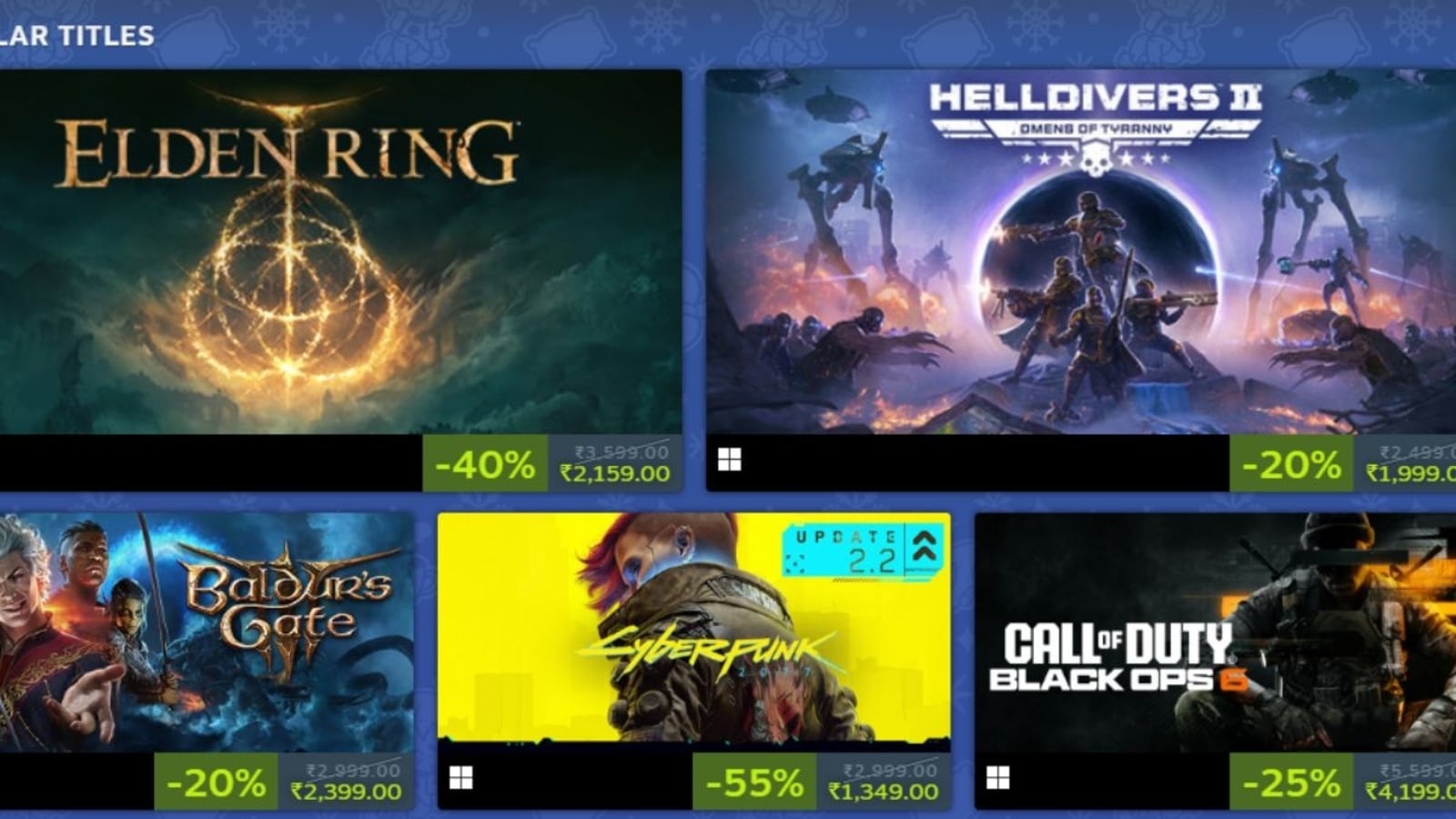Potential Republican rivals to Donald Trump are ramping up their 2024 maneuverings, reflecting a growing sense in the party that the former president is far from the inevitable nominee after a midterm election in which he was blamed for many of the party’s woes. “You never know when that early front-runner is going to stumble,” said Hutchinson, who is urging the party to move on from Trump and said it’s too soon to say who else will catch on.
So far, Trump is the only major candidate who has officially announced his 2024 bid. But both publicly and behind the scenes, major Republican figures are laying the foundations for potential campaigns, according to a review of their activities and interviews with people familiar with the planning, some of whom spoke on the condition of anonymity to describe internal strategy.
Many operatives said they see benefits to sitting back and methodically preparing while Trump deals with growing problems. The former president faces several investigations; criticism of his associations, including a widely condemned dinner he had with antisemites; and growing calls in the party to go in a new direction.
“Trump is certainly not who he used to be,” said Mike Dennehy, a longtime GOP consultant in New Hampshire.
While he was first out of the gate, Trump has not generated overwhelming enthusiasm for his candidacy, with polls showing he is not unstoppable, many prominent Republicans declining to endorse him, and many others becoming more outspoken in their criticism of him. Trump has not held a campaign rally since announcing his campaign at his Mar-a-Lago estate in mid-November. A spokesperson for Trump did not respond to a request for comment.
The coming months will be critical for rivals working to staff up, build their profiles in key states and finance a grueling campaign, strategists said. DeSantis is the most talked-about potential candidate, but the Florida governor has yet to announce a run or rule it out.
Numerous potential candidates have said they will make a decision on 2024 this winter or spring, and quasi-campaign events are expected to ramp up quickly after the holidays, as they flock to early states for meet-and-greets and fundraiser Lincoln Day dinners.
Potential contenders are well into laying groundwork for campaigns, as more than a dozen have signaled interest or have declined to rule out a run amid speculation. Yet it’s unclear how many will actually take the plunge. A crowded field could play to Trump’s advantage, as it did in 2016 when the rest of the party did not unite around a single alternative as Trump won key early contests with a plurality of the vote.
“We figured by the first quarter next year, we need to be hard at it if we’re going to do it,” said Pompeo in a recent Fox News interview. Pompeo’s political action committee did not respond to a request for comment.
Nikki Haley, the U.N. ambassador under Trump, said at a recent event that she will take the holidays to evaluate whether to run. Pence will have his full family together in Indianapolis for the holidays for the first time in three years as he weighs his options, an aide said.
The former vice president, who is at odds with Trump and his allies over his refusal to attempt to overturn the 45th president’s 2020 election loss, will continue his book tour next month with visits to megachurches, the aide said, starting Jan. 15 with the First Baptist Church of Dallas and its pastor Robert Jeffress, a longtime evangelical ally of Trump.
Jeffress declined to immediately endorse Trump when he announced a third White House bid in November, even as the pastor called him a “great president” — one of many signals that Trump, while still formidable, has hardly consolidated the party’s support.
Trump leads in many 2024 polls, but DeSantis has started to outpace him in some head-to-head surveys, and congressional allies are not rushing to endorse the former president. Former members of Trump’s administration are trying to stake claims to key parts of his coalition, with Pence appealing heavily to the religious right and centering his opposition to abortion.
In some states, governors are preparing for legislative sessions early next year that could provide new platforms for a presidential pitch. In Florida, where new GOP supermajorities will give DeSantis even more power to enact his agenda, Republicans expect to tackle abortion, data privacy and “constitutional carry” for firearms, according to a Tallahassee lobbyist familiar with the plans, as well as the use of “environmental, social and governance” (ESG) criteria in investing — a practice increasingly vilified on the right as liberal excess. State officials have started to preview some of that agenda.
DeSantis’s office did not respond to a request for comment.
DeSantis is fresh off a resounding reelection win while the rest of his party fell short of making the big gains it had hoped for in the midterms. He has waged high-profile legislative battles over the past two years — pushing to curtail coronavirus vaccine mandates; banning classroom discussions of sexual orientation and gender identity for younger elementary school students; and stripping Disney of its special tax status in Florida after the company criticized DeSantis’s policies, among other things.
The coming session is expected to continue clashes with corporations, with Republicans trying again to pass a DeSantis-championed bill on the unauthorized use of consumer data and taking aim at ESG by setting new rules for the investment of state funds. Florida officials recently said they would pull state assets from ESG proponent BlackRock, a major asset-management firm, which denounced the move as political.
Florida’s current 15-week ban on abortion is less restrictive than many other Republican-controlled states’ policies, and DeSantis has been vague in public about what further restrictions on abortion he would support — a potential vulnerability in a GOP primary. At a news conference this month, however, DeSantis expressed openness to a “heartbeat bill” ban at roughly six weeks of pregnancy.
While Trump has drawn plenty of direct and implicit criticism from governors, their allies and others who might enter the race, some are also looking to differentiate themselves from DeSantis. One adviser to South Dakota Gov. Kristi L. Noem contrasted her with DeSantis while noting that, late last month, Noem became the first governor to ban the social media app TikTok on state devices while citing national security concerns. Other states soon followed.
The Noem adviser, who spoke on the condition of anonymity to share private planning, said the governor expects to visit Iowa early next year. Ian Fury, a spokesman for Noem, said she has invitations to numerous Lincoln dinners coming up, including in Iowa, but has not yet committed. She believes the message that won her reelection in November “should be shared with the rest of the country,” Fury said.
In Virginia, Gov. Glenn Youngkin — who shot to stardom last year while flipping the state — has proposed tax cuts for residents and corporations that could run up against opposition in the Democratic-controlled state Senate, though the state legislature approved $4 billion in tax cuts earlier this year. Virginia’s legislative session, which starts mid-January, could give the governor more achievements to run on.
The wealthy former executive of a private equity investment firm faces less pressure to raise money ahead of a potential 2024 bid — but Youngkin has also been courting donors and this fall held a retreat that some involved described as a way to gauge 2024 support.
Youngkin said at the event that he did not know what would happen but invited donors to go on a “journey” with him, according to an attendee who took note of the open-ended language.
In New Hampshire, Gov. Chris Sununu (R) has echoed worries about a repeat of 2016, when a crowded field split the vote and helped hand Trump the nomination and eventually the presidency. But he also has not ruled out a run of his own. Despite declaring in a recent CNN interview that he is focused on New Hampshire, Sununu recently launched Facebook ads targeted to Iowa and South Carolina, as first reported by FWIW News, which tracks online ads closely.
FWIW News spotted two other candidates restarting their Facebook ads recently: DeSantis and Sen. Tim Scott (R-S.C.), both fresh off winning reelection. Scott ran ads in swing states this year, released a book and spoke this fall at a Republican Jewish Coalition meeting that served as a showcase of potential 2024 candidates.
In Maryland, term-limited Gov. Larry Hogan (R) amped up his fundraising late last month with an event that promoted a federal political action committee and raised more than $1.2 million. He has said he will not announce his plans until he leaves office early next year.
Another prominent governor discussed as a possible contender, Greg Abbott of Texas, has done little to show movement toward a presidential run this cycle. New Hampshire-based GOP consultant Dave Carney, who advises Abbott, said the governor is focused on the southern border and the coming legislative session and “will take time to thoughtfully look at what the options are” in June, after the session ends.
Other potential candidates include Sen. Rick Scott (R-Fla.), former New Jersey governor Chris Christie — who once chaired Trump’s transition team but now sharply criticizes the former president — and Sen. Ted Cruz (R-Tex.), the runner-up for the GOP nomination in 2016.
“There’s a lot of good people that are considering the race,” said Hutchinson, the Arkansas governor, who said he stands for taking “the theatrics” out of governing. “Is my message unique? Is my skill set and tone and leadership what is right for America at this particular time?”
Michael Scherer and Tyler Pager contributed to this report.

























